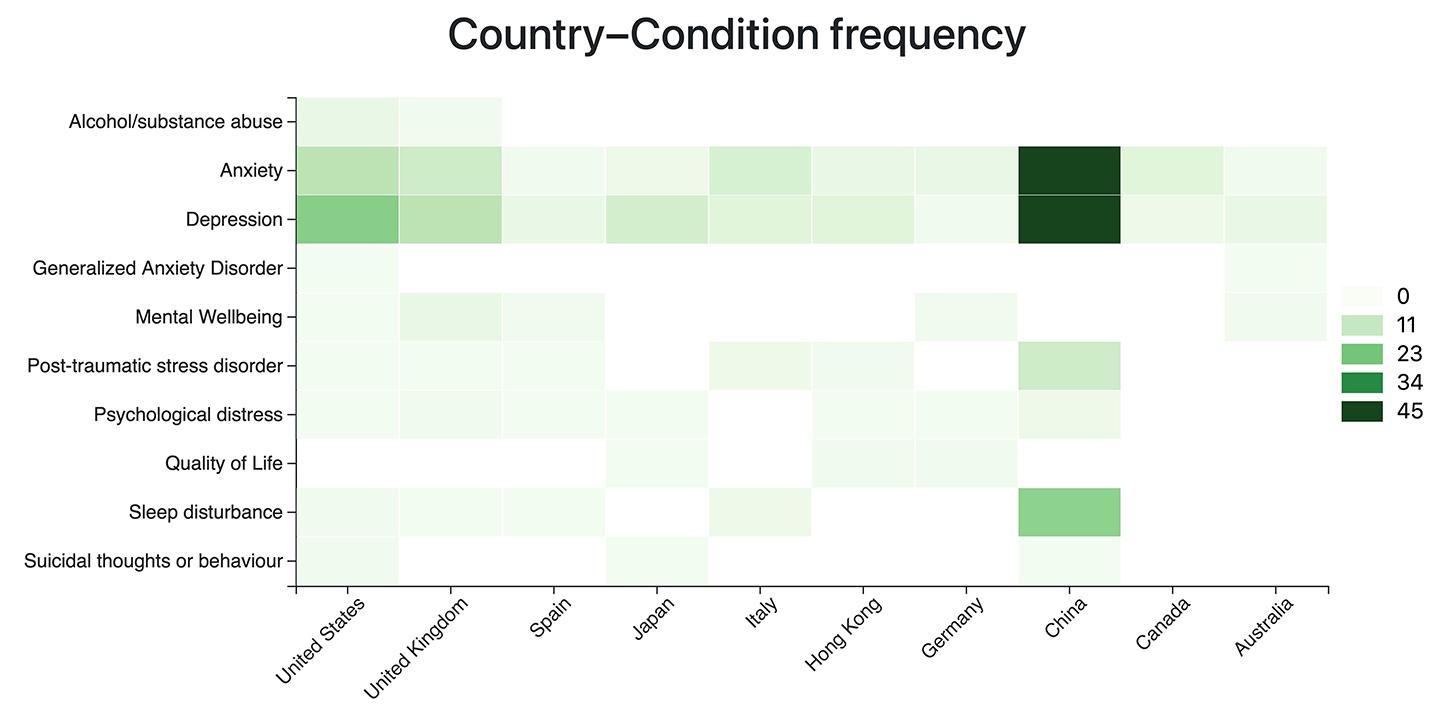An Interactive Atlas of Global Mental Health

In this project, researchers from around the world are jointly collecting, analysing, and visualising data on mental health during the pandemic.
Numerous researchers are working together in the "Mental Health in the Covid-19 pandemic" (MHCOVID) project to collect, evaluate and synthesise data relating to the mental health of the general population during the pandemic. Using crowdsourcing, data are collected from local studies carried out in numerous countries. The project website of the University of Bern presents the available data interactively by country, age group and mental health condition.
The project also aims to map mental health in relation to containment measures. The researchers draw on data from studies on the changes in mental health over time and in separate geographic regions, and apply cutting-edge methodology. They describe the correlation between the stringency of the measures taken by governments and the mental health of the population.
What distinguishes the project is that the researchers do not collect the data themselves, but use existing research data from studies worldwide. The so-called "crowd" consists of 80 researchers in 19 different countries who have screened more than 40,000 published studies to identify the most suitable data. For example, data on alcohol abuse, depression or sleep disorders that occurred during the pandemic are being collected.
The publicly available visualisations can be accessed on interactive maps. At this stage, however, no conclusions can be drawn from them about the changes in mental health and the impact of the containment measures. Rather, they show on a quantitative level what health problems have come into scientific focus due to the covid pandemic, and where and how intensively these have been investigated.
